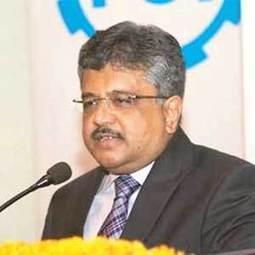
As the hearing of the state governments in the ongoing National Eligibility Entrance Test (NEET) case began this afternoon in Court 2, the additional solicitor general, Tushar Mehta, who is the counsel for the Gujarat Government, was the first one to argue.
Among the judges who comprised the bench, only Justice Anil R Dave, who presided it, understands Gujarati; the other two, justices Shiva Kirti Singh and AK Goel don't.
This apparently came in handy for Mehta to persuade Dave to understand the problems of Gujarati medium students, sympathetically.
Mehta said: "I am a brilliant Gujarati-medium student, but I can't compete with the English medium students at the NEET exam. I am told to clear the threshold within the span of a few days, despite the language barrier."
The Phase-1 of the NEET test, held on 1 May, was conducted in the medium of English and Hindi.
Mehta then handed over copies of question papers which the students at NEET answered, and drew the attention of the bench to a few tough questions.
When Justice Dave found it difficult to understand a few questions, Mehta asked: "If your lordships can't understand, how can a child?", provoking laughter in the courtroom.
Taking another example, he said the Gujarati medium students can understand the Gujarati equivalent of spinal cord, but not in English or Hindi.
Mehta then handed over a Gujarat-state question paper to Justice Dave, so that he could understand how a Gujarati medium student would have suffered taking the NEET test.
"There may be 10 reasons for not granting our prayer; but kindly consider one for granting," Mehta told the bench.
The inevitable result of the NEET test is, Mehta said, that those who are otherwise meritorious, but can't afford convent education will suffer, and those who are meritorious, and can afford convent education would steal a march over them.
Had the NEET announcement come six months earlier, the children would have been mentally prepared, he said, appealing to the bench to imagine the problems that the children would have faced.
"Implement the order from the next year", Mehta pleaded, and added that the state asserts its rights on behalf of the children.
Other states made similar demands before the bench. The hearing of the case will continue tomorrow.
threads most popular
thread most upvoted
comment newest
first oldest
first
Giving judgment affects a lot of people, so you shouldnt implement them asap. Rather, give people time. Don't create confusion please SC.
And one more thing, i have already appeared for the exam on May 1st and i DO NOT want to appear again because im getting a good score. Please don't try to solve problems without knowing what problems are.
When Russians or Chinese can study Medicine in their own languages, what did MCI do improve healthcare facilities in the country by way of creating medical books in vernacular language ?
threads most popular
thread most upvoted
comment newest
first oldest
first